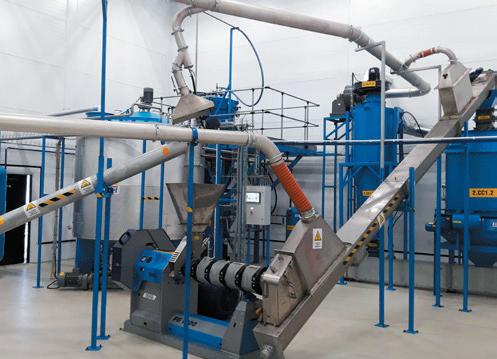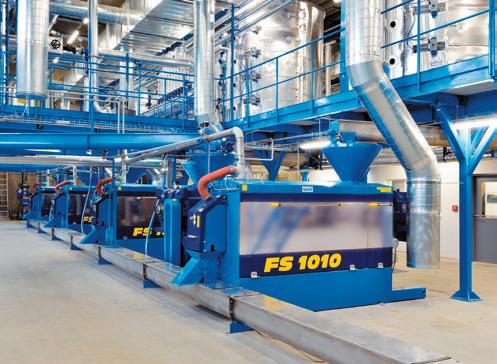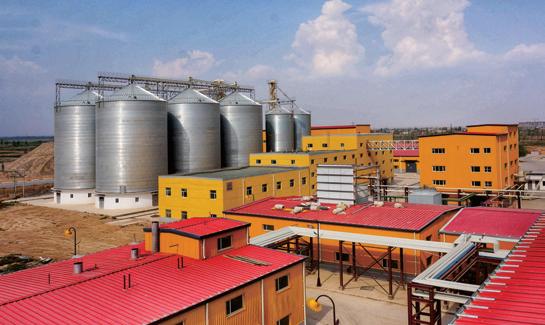
5 minute read
European glycerine prices
IN BRIEF
GERMANY: Hamburg-based Hammonia OleoChemicals (HOC) and Spain’s Industrial Química Lasem (IQL) have expanded their partnership in Germany, HOC announced on 4 April.
As a result, HOC would be supplying IQL’s speciality esters, in addition to the existing products of IQL’s parent company Nisshin Oillio, for cosmetics applications in Germany.
The co-operation between the two partners began in 2018 for applications other than cosmetics.
IQL is a leading European oleochemicals manufacturer and supplies a portfolio of emollients, emulsifiers and thickeners for personal care applications. In addition to medium chain triglycerides (MCT) based on coconut, monohydricalcohol esters and polyhydricalcohol esters form its product base.
UK: Researchers at Aberystwyth University’s Institute of Biological, Environment & Rural Science have developed new miscanthus hybrids which can produce biomass for a range of products including bioplastic, Bio Market Insights reported on 1 April.
The hybrids were adapted to lower quality land less suitable for food production and were produced from seeds, instead of rhizomes, allowing for more rapid scale-up of the planted area. Industry partner Terravesta was aiming for a commercial roll-out of the crop this year.
European glycerine prices triple as biodiesel use falls
European glycerine spot prices have tripled amid fears that upstream biodiesel production will fall further due to coronavirus movement restrictions, the Independent Commodity Intelligence Services (ICIS) reported on 3 April.
Glycerine is a by-product of biodiesel production and lack of demand for fuels in Europe due to COVID-19 restricting travel had led some biodiesel producers to cut or halt production.
ICIS said refined vegetable glycerine prices had shot up €130-230/tonne to €670-900/tonne FD (free delivered) NWE (northwest Europe) in the week ending 3 April. Refined tallow/technical vegetable glycerine values also jumped €100- 210/tonne to €500-670/tonne FD NWE. Crude glycerine prices rocketed by €150/tonne to €310-480/tonne FD NWE.
ICIS said there was little to no material being imported from southeast Asia due to logistical issues moving material into Europe, as well as a lockdown in Malaysia forcing some oleochemical plants in the country to shut.
“Any material that can leave southeast Asia bound for Europe will take at least 40 days to reach its destination.”
ICIS said it was likely that biodiesel production in the EU would remain reduced for most of the second quarter.
“Biodiesel producers don’t have any offtake for biodiesel right now,” ICIS quoted one glycerine seller as saying. “Demand has collapsed … there is no external storage space left in Europe.
“There are 30,000 tonne cargo vessels being re-routed into Europe from Asia because they can’t dock there and, when they dock here, they need to store it. So producers have to lower their utilisation rates in the plant because the customers have nowhere to put the product.”
ICIS said glycerine demand remained healthy, with a slight increase seen in interest for use in sanitiser applications, though glycerine was a small component of most sanitiser products.
Glycerine was mainly used in personal and oral care products such as skincare creams, toothpastes and mouthwashes, as well as food products either as glycerine directly or one of its derivatives such as glycerol mono-stearate.
There had been a drop in demand for industrial applications, with the rubber and antifreeze industries taking a knock from falling automotive demand. Photo: Adriano Gadini, Pixabay
Gevo suspends operations at Luverne plant
US renewables firm Gevo Inc announced on 31 March that it was suspending operations at its Luverne facility in Minnesota for the foreseeable future due to the impact of the COVID-19 virus.
However, it will continue the production of renewable isooctane and sustainable aviation fuel from its plant in Silsbee, Texas.
“Additionally, Gevo intends to continue developing its hydrocarbon business and will continue to move forward in securing the project funding needed to expand the Luverne facility. The expansion is designed to allow Gevo to produce large quantities of low carbon isobutanol, sustainable aviation fuel and renewable isooctane.”
Gevo uses a variety of sugar and starch feedstocks, such as beets and sugarcane.
VTT develops thermoplastic cellulose with Arla, Paulig and Wipak Finland’s VTT Technical Research Centre has developed a bio-based plastic made from cellulose and fatty acids that can be used for food packaging, Bio Market Insights reported on 14 April.
VTT said it was working in cooperation with dairy company Arla Foods, food and drink firm Paulig and packaging company Wipak to develop its product.
Thermoplastic cellulose – a cellulose moulded using heat – could be processed like conventional plastic and refined into packaging films and bulk commodities, VTT said, adding that the final application of its Thermocell product would depend on how companies wanted to use it.
“The next step in the development process is to produce hundreds of kilos of the material and process it into various packaging prototypes with companies to verify its functionality in industrial processes and real application conditions.”
VTT said it hoped that cooperating with Arla, Paulig and Wipak would help boost the launch of its material on to the market and expected the project to be completed by May 2021.

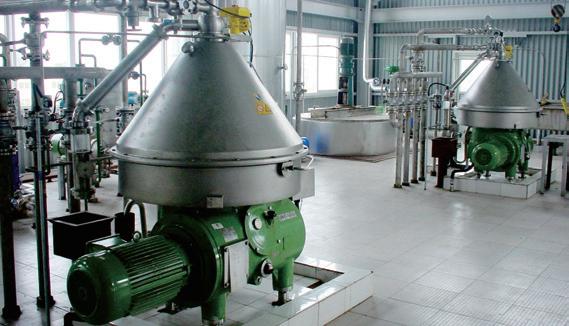

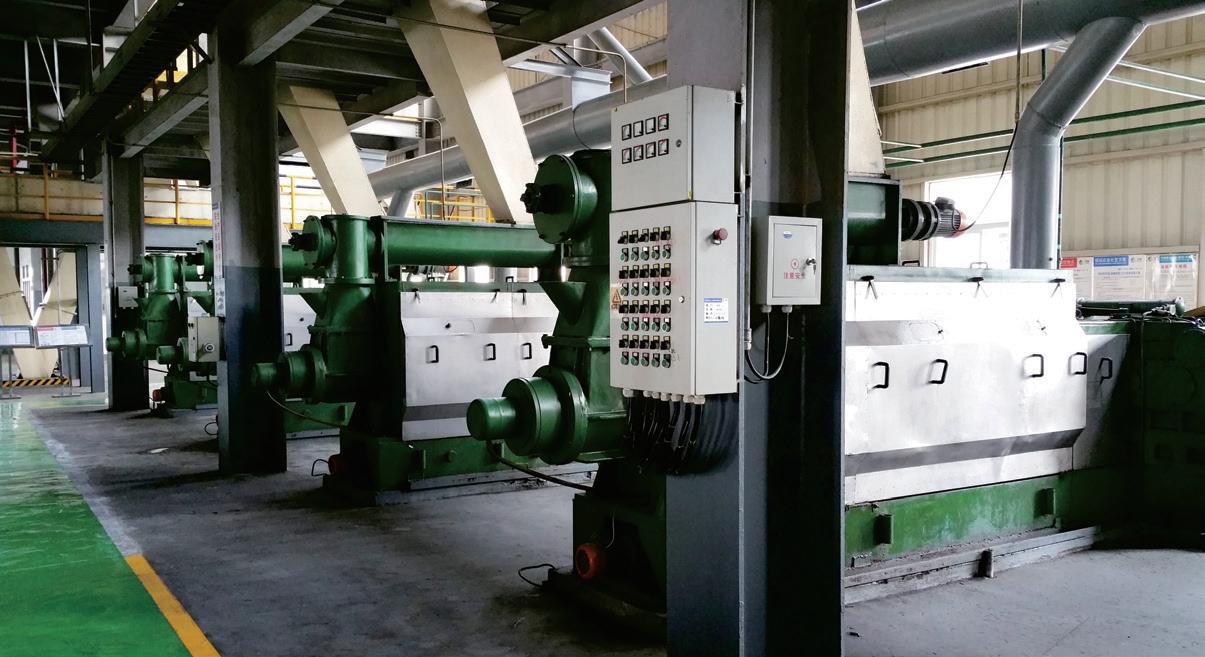

HEXANE FREE OIL & FEED PROCESSING TECHNOLOGIES

• UNIQUE COMBINATION OF EXTRUDERS AND SCREW PRESSES • MECHANICAL OIL EXTRACTION WITH MULTIPLE STAGE PRESSING • EFFICIENT SOYBEAN PROCESSING WITH RECUPERATION SYSTEM • THING GLOBALLY, ACT LOCALLY • GMO FREE PROCESSING • ORGANIC PROCESSING
FARMET - YOUR PARTNER IN THE FIELD OF OILSEEDS & OIL PROCESSING; FEED EXTRUSION WITH THE FOCUS ON SOYBEAN

